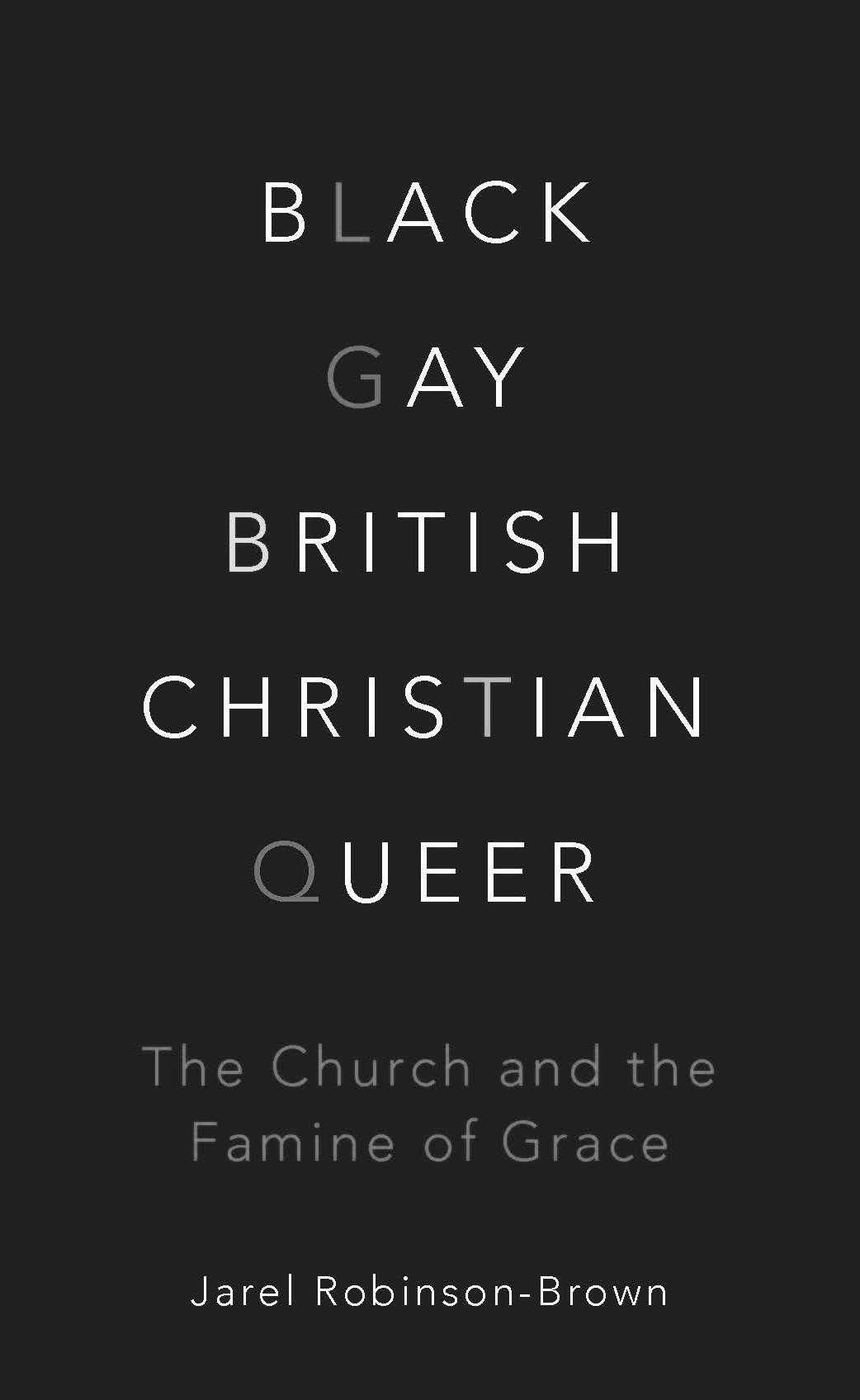Review of Jarel Robinson-Brown, Black Gay British Christian Queer (London: SCM Press, 2021), by Yazid Said, Liverpool Hope University
Yazid Said, Lecturer at Liverpool Hope University and trustee of the William Temple Foundation, reviews Jarel Robinson-Brown’s recent book. Said applauds Robinson-Brown’s call for repentance but wonders whether human nature can really be viewed so optimistically.
Jarel Robinson-Brown’s book articulates critiques and reconstructions of the Christian understanding of grace from his experiences of living as a member of the Black LGBTQ+ Christian community in Britain. He is concerned with the ways in which being black and gay can encourage individuals and the whole Church to reimagine grace and to challenge some teachings and practices in the Church. The book is therefore mainly on how grace determines our understanding of divine action in the Incarnation (Chapter 2) and the crucifixion (Chapter 3) and its relationship to human action (Chapters 4 & 5). Drawing on several experiences of other gay, black, and queer individuals, he argues that genuine grace means walking alongside people in a position of powerlessness rather than in exercising power over them (pp. 72, 105-106).
The book’s importance lies in its emphasis on justice and its calling for a common repentance; it highlights the importance of the Church as a place of welcome for everyone and the significance of encountering the face of our victims for the release of grace (pp. 72 & 80).
Some issues raised in the book, however, require some unpacking. Grace itself remains a highly contentious concept in Christian history, reflecting a wide range of views on sex and sexuality. The implications, therefore, of how the author engages with Christian doctrine are mixed. He points to the Incarnation and crucifixion as an alternative to the emphasis on God’s transcendence, which he often links to human power structures (pp. 52, 56-58). Jesus’ story expresses divine immanence (pp. 50-58). Divine impassibility (Greek apatheia) would be rejected (pp. 69-70). In this way, the book draws on familiar themes and insights from other liberation theology traditions, emphasising the humanity of Jesus, as someone who stands alongside the outcast (p. 84). However, unlike other writers in this tradition (such as Carter Hayward’s The Redemption of God) Robinson-Brown subscribes to the orthodox definitions of Christ (pp. 104-106).
The author, evidently, has a view of grace that reflects a particular liberal philosophy. When it comes to the salvific effect of grace, he reads it as salvation from within, rather than an external challenge for change (106). This suggests that he maintains a highly optimistic view of human nature in line with liberal philosophy. He draws on other activists who have a shared sexuality and a common intellectual heritage with him. Robinson-Brown is not subscribing to liberal individualism, however. He believes that if communities and members of the Body of Christ cooperate, they can achieve true justice in response to the revelation of God in Christ (Chapter 5).
There is no discussion of the Christian understanding of original sin. Indeed, he talks of ‘silencing our sin-talk’ (p. 38). The book does not struggle with the implications of sin for all, when grace includes God’s judgment on sin for the benefit of the sinner (Matthew 9: 10-13). This is reflected in the manner of using scripture. We are rightly reminded that Jesus is more at home in the company of tax collectors and sinners (p. 84). However, whilst Jesus enjoyed the company of sinners, he did not see them as other than sinners. The woman found in adultery is still a sinner: ‘go and sin no more’ (John 8: 1-11). Zacchaeus was still a greedy person (Luke 19); they all need the grace of God in Jesus.
Whilst dependence on Christology and salvation remain striking in the book, the ambiguity of discussing ‘sin’ explains the ambiguity around his discussion of the crucifixion too. The cross becomes for the author a weapon (pp. 63, 67, 69). He identifies the suffering of Black LGBTQ+ Christians with Christ’s suffering. But this identification cannot reflect what is truly radical and new in the cross. It is the darkness of death on the cross that judges all our systems, not simply the suffering that makes us more ‘righteous’. It is difficult to assess whether Jesus suffered more than the millions who suffered in the twentieth century. This is neither here nor there. Rather, the cross silences us—all of us, white, black, gay, or straight—as it reminds us how we all tend to reject the truth when it comes among us.
Similarly, Dietrich Bonhoeffer’s ‘cheap grace’ is susceptible to misuse in the book (p. 40). Though Bonhoeffer was influential in radical ‘secular’ theological writings such as that of John Robinson’s Honest to God (1963), Bonhoeffer was certainly not trying to push for the usual liberal argument that claims to make God ‘relevant’ to ‘the modern world’. Rather he was trying to confront the evils of the modern world with the radical worldliness of the gospel.
It would also be good to unpack a little more of what the author means by ‘White Supremacy’ in Britain today (pp. 112 & 157). Some might distinguish between supremacist ideology and a ‘hidden’ racism. The latter is more personal. An argument, for example, from Rowan Williams’ chapter ‘Nobody knows who I am till the judgment morning’ in On Christian Theology (pp. 276-289) discusses the question of racism as part of a larger task of defining a human crisis overall.
It is evident today that the earlier blanket condemnation of sexual minorities is no longer tenable or indeed desirable. There are enough signs across different church traditions to move away from the condemnatory language of the past. Robinson-Brown refers critically to the Church of England’s document Issues of Human Sexuality (1991) (p. 10); he could have clarified that further in pointing to an aspect of legal hypocrisy here. The document goes as far as to see committed homosexual relationships as a valid option for Christian living whilst attaching celibacy to the legal expression of committed homosexual relationships. It therefore denies a key dimension of gay identity.
Robinson-Brown’s book deserves support for its cause and its apt call for the church to live out its call for repentance; but one still needs to ask to what extent this kind of ‘identity-focus’ theology is able to prosper where the liberal philosophical tradition is less influential. The book seems to assume that people who share the LGBTQ+ identity all share the same experiences, either private or social. This may not necessarily be the case either. Many who may be sympathetic to the cause, may not embrace the optimism that seeks to erase the importance of human sin. A strong consciousness of our fallenness helps deliver us from the kind of binaries that identity theologies—and politics—seek to work with.


Discuss this